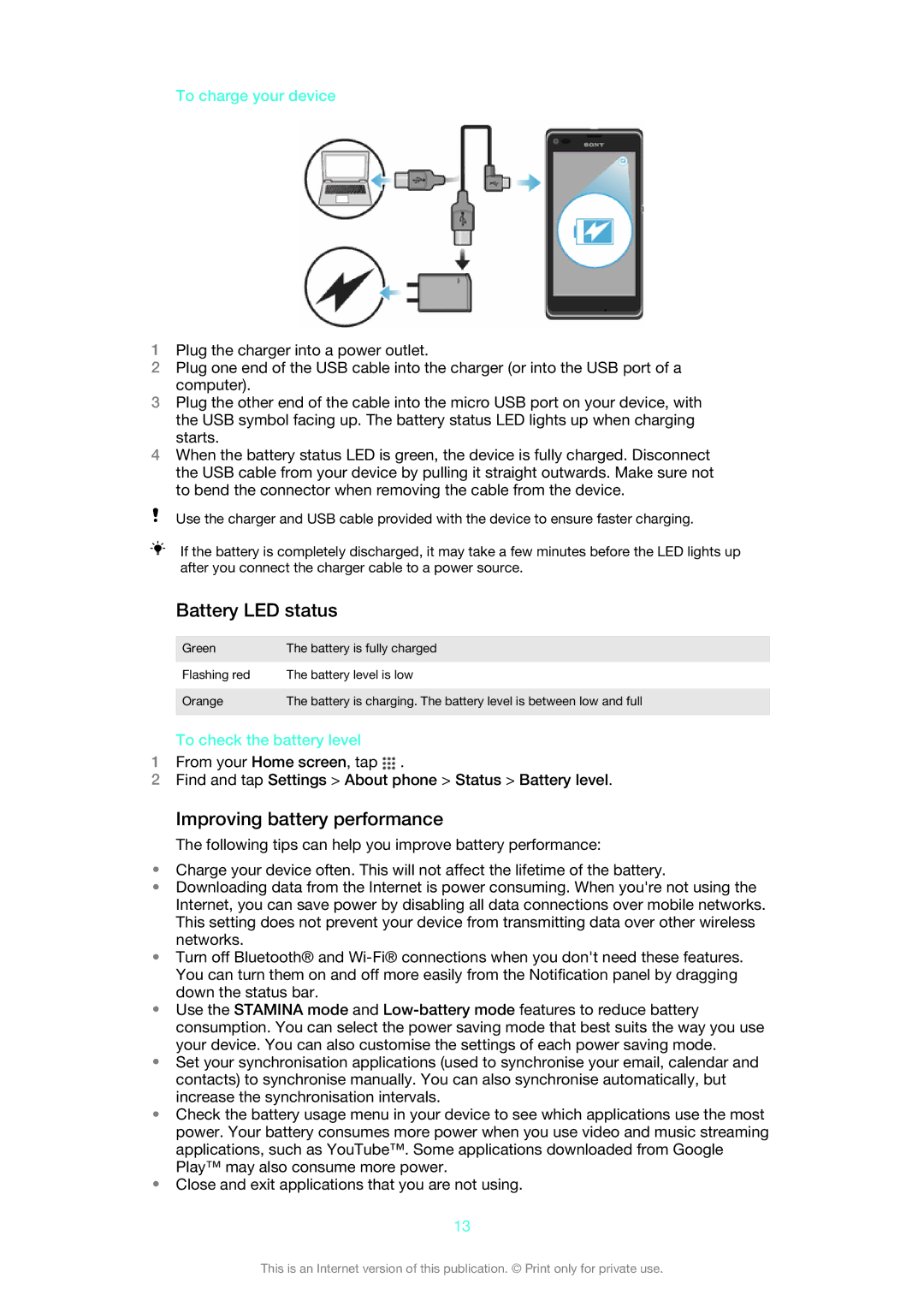
To charge your device
1Plug the charger into a power outlet.
2Plug one end of the USB cable into the charger (or into the USB port of a computer).
3Plug the other end of the cable into the micro USB port on your device, with the USB symbol facing up. The battery status LED lights up when charging starts.
4When the battery status LED is green, the device is fully charged. Disconnect the USB cable from your device by pulling it straight outwards. Make sure not to bend the connector when removing the cable from the device.
Use the charger and USB cable provided with the device to ensure faster charging.
If the battery is completely discharged, it may take a few minutes before the LED lights up after you connect the charger cable to a power source.
Battery LED status
Green | The battery is fully charged |
|
|
Flashing red | The battery level is low |
|
|
Orange | The battery is charging. The battery level is between low and full |
|
|
To check the battery level
1From your Home screen, tap ![]() .
.
2Find and tap Settings > About phone > Status > Battery level.
Improving battery performance
The following tips can help you improve battery performance:
•Charge your device often. This will not affect the lifetime of the battery.
•Downloading data from the Internet is power consuming. When you're not using the Internet, you can save power by disabling all data connections over mobile networks. This setting does not prevent your device from transmitting data over other wireless networks.
•Turn off Bluetooth® and
•Use the STAMINA mode and
•Set your synchronisation applications (used to synchronise your email, calendar and contacts) to synchronise manually. You can also synchronise automatically, but increase the synchronisation intervals.
•Check the battery usage menu in your device to see which applications use the most power. Your battery consumes more power when you use video and music streaming applications, such as YouTube™. Some applications downloaded from Google Play™ may also consume more power.
•Close and exit applications that you are not using.
13
This is an Internet version of this publication. © Print only for private use.
